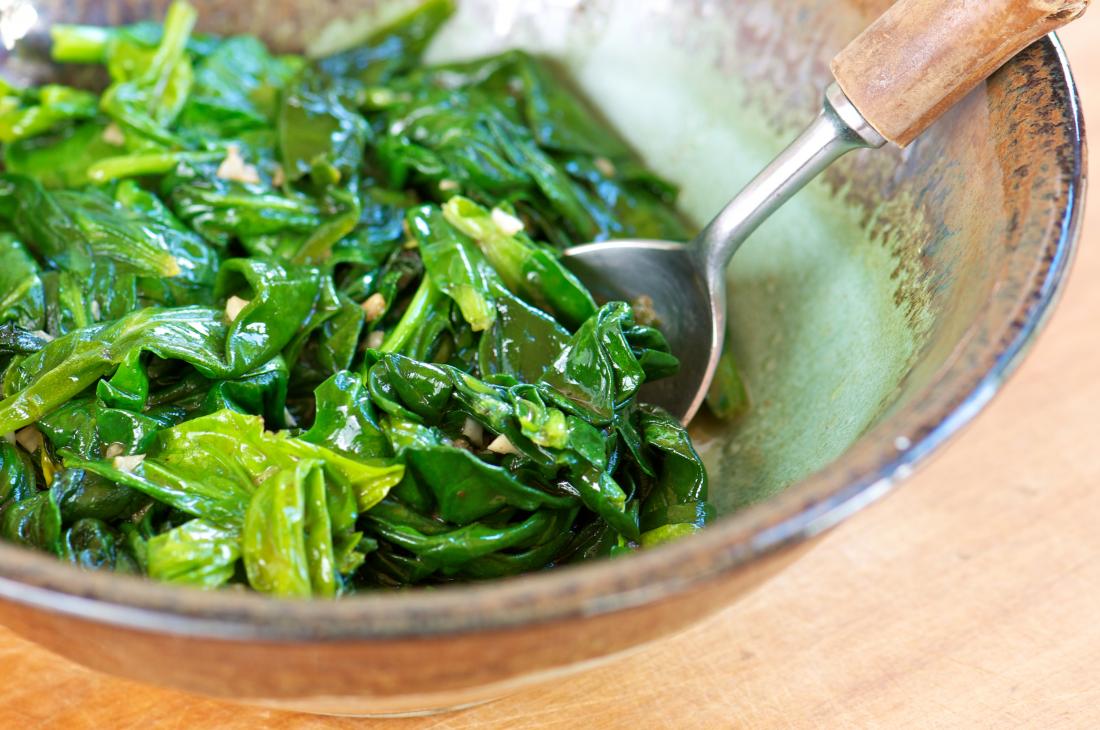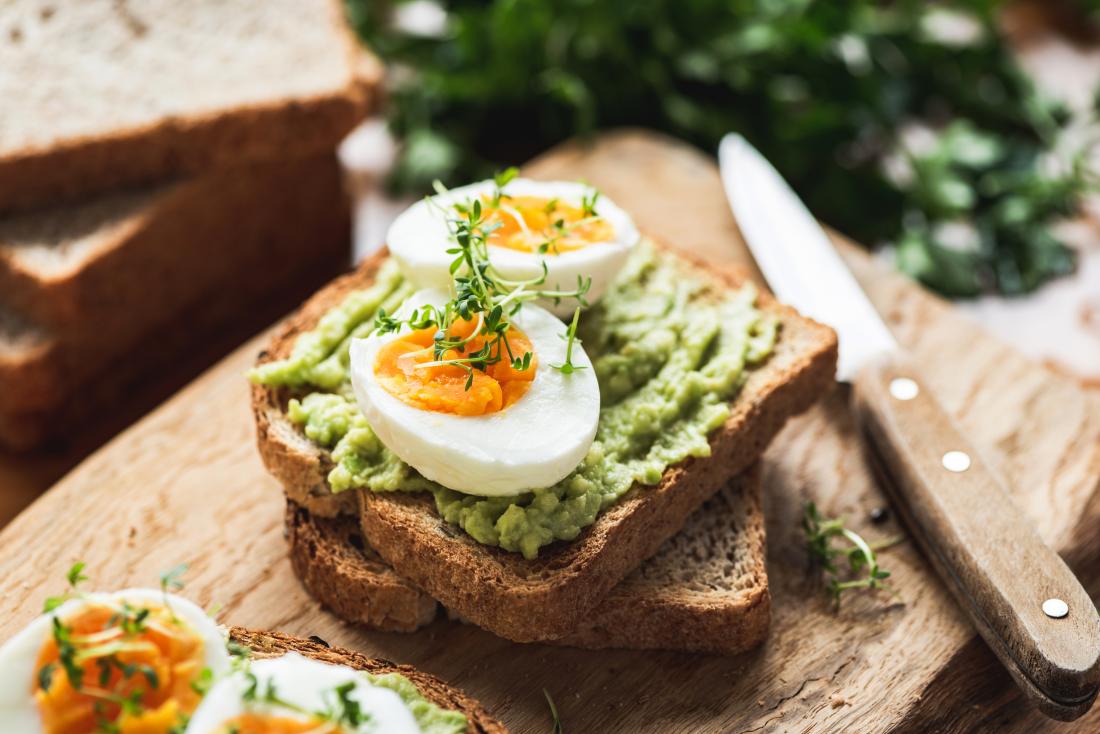The symptoms of a hangover vary from one person to another. However, most people experience headache, tiredness, and irritability. Nausea and excessive thirst are also common. The severity of these symptoms usually correlates with the amount of alcohol a person consumed.
Many people claim that certain foods and drinks can cure a hangover. While there is no actual “cure” for a hangover, research indicates that certain foods may help to alleviate hangover symptoms.
This article outlines the best foods to eat during a hangover. We also dispel some common myths about hangover cures and provide tips on how best to prevent a hangover.
Best foods and drinks for a hangover
Eggs
Eggs and avocados are two of the best foods to eat during a hangover.
Eggs are a good source of nutrients and contain simple proteins that are particularly gentle on the stomach.
This may be especially important the morning of a hangover, when a person may experience nausea and digestive upset.
People should avoid eating eggs with oily foods, such as butter, oil, or greasy meats. Oils may further upset a sensitive stomach.
Bananas
Bananas contain a good amount of potassium. Eating a banana will help to replenish the body’s potassium levels after a night of heavy drinking.
Bananas also contain fiber and sugar. Fiber promotes digestion and can alleviate digestive symptoms; sugar provides the energy a person needs to start the day.
Avocados
Avocados are another excellent source of potassium and calories for anyone needing a boost in the morning. However, some people may find that the fat in avocados irritates their digestive system.
Oats
Many people consider oats to be the perfect hangover food. This is because oats contain many of the nutrients that alcohol depletes from the body.
As the USDA National Nutrient Database note, oats contain nutrients and minerals such as:
Oats also contain helpful anti-inflammatory fibers called beta-glucans. Foods that have anti-inflammatory properties could help to reduce the inflammation associated with a hangover.
Adding bananas, dates, or honey to porridge will provide extra energy for the day ahead.
Dark, leafy greens

Dark, leafy greens may help with diarrhea or constipation from heavy drinking.
Dark, leafy greens are among some of the most nutritious foods available. They contain a variety of nutrients, amino acids, and minerals. These help the body to recover from the effects of alcohol.
Dark, leafy greens also tend to be a good source of fiber. Fiber can help with some of the digestive issues, such as diarrhea or constipation, that heavy drinking can cause.
Adding spinach to an omelet is a quick and simple way to eat greens on the morning of a hangover.
Healthful carbs
Carbohydrate snacks are typically easy for people to digest and provide the body with a quick source of energy. This is particularly helpful during a hangover, when a person may feel queasy and tired.
Some simple carbohydrates, such as toast, bagels, or plain crackers, provide energy while being gentle on the stomach.
However, people should be careful to avoid overly salty or oily carbohydrate foods, such as chips. These can upset a sensitive digestive tract.
Water
Alcohol acts as a diuretic, meaning it causes a person to urinate more. This excess urination can easily lead to minor dehydration.
Dehydration can cause unpleasant hangover symptoms, such as a headache and excessive thirst. Staying hydrated is one of the best ways to prevent and alleviate a hangover.
Sparkling water
A 2016 study investigated whether drinking certain non-alcoholic drinks alongside alcohol would boost alcohol metabolism in mice. Soda water was one of the drinks that sped up alcohol metabolism and helped to prevent alcohol-induced liver damage.
Soda water helps the liver to break down alcohol by-products within the body. Ordinarily, these by-products lead to hangover symptoms.
Natural sparkling water also contains sodium and other minerals. These help to replenish electrolyte levels following dehydration.
Green tea
If a person has an upset stomach the day after drinking, they may want to avoid their morning cup of coffee. Highly caffeinated drinks can further aggravate an upset stomach. Green tea may be a much better alternative.
Green tea was one of the non-alcoholic drinks that sped up alcohol metabolism in the 2016 study, above. Like soda water, it also helped to prevent alcohol-induced liver damage.
Fruit or plant juices
Fresh fruit and vegetable juices not only contain water, but they also contain high levels of nutrients, antioxidants, and electrolytes. These may be especially helpful for the body as it recovers from a night of drinking.
A 2016 study investigated the effects of different fruits on alcohol metabolism in mice. Mice that consumed lemon, starfruit, or pear juice while heavily intoxicated on alcohol showed reduced concentrations of alcohol in the blood.
The researchers suggested that these fruits could help to prevent hangovers and other side effects of excessive alcohol consumption.
A 2018 study found that a specific mix of fruit and vegetable juice reduced some hangover symptoms in healthy adults. The juice mix consisted of:
- pear juice
- green grape juice
- ashitaba juice, which is a plant in the carrot family
One group of participants drank the juice mix 30 minutes before consuming alcohol, while a control group drank water. Participants who drank the juice mix were less likely to experience a headache and thirst. They also showed significantly lower levels of blood alcohol in comparison to the control group.
It is not clear whether these fruits are beneficial the morning after a heavy bout of drinking. Nonetheless, the water, sugar, and minerals in fruit will help to alleviate dehydration.
Electrolyte drinks
During a hangover, many people turn to rehydration drinks, such as Pedialyte. These are rich in electrolytes.
For convenience, some people turn to electrolyte drinks and sports drinks, such as Gatorade and Powerade. Like Pedialyte, these contain essential electrolytes, such as sodium and potassium. However, most sports drinks will also contain a large helping of sugar and calories.
As a healthier alternative, people can try natural coconut water. A 2012 study found that coconut water and sports drinks were equally effective in treating dehydration.
What to avoid
There are a couple of myths surrounding alcohol and hangovers. Not only are the following claims unlikely to cure a hangover, but they may even make the hangover worse. People should, therefore, avoid the following:
Drinking more alcohol in the morning
Some people suggest that the best hangover cure is to drink more alcohol upon waking up. This theory probably has its base in the fact that hangover symptoms tend to appear as blood alcohol levels become very low.
While drinking more alcohol could provide temporary hangover relief, doing so is merely delaying the hangover. Once the body processes the alcoholic drink, the person will likely go back to being hungover.
Eating greasy foods
Eating greasy foods may help slow the absorption of alcohol in the blood. However, this method is only helpful if a person eats the greasy foods before drinking alcohol.
Eating greasy foods the morning after might upset the sensitive digestive system, making the hangover worse.
Prevention tips

Drinking one glass of water for every alcoholic beverage may help prevent a hangover.
While some foods may help cure a hangover, it is probably best to prevent a hangover in the first place. Here are some hangover prevention tips:
- Stay hydrated: A good guideline is to drink one glass of water for every alcoholic beverage during the night.
- Eat before drinking: Eating heavier foods before drinking may slow down alcohol absorption in the body. This may reduce the effects of a hangover the following day.
- Sleep: The effects of a hangover may be worse if the person does not get enough sleep. People should aim to get a full night’s sleep after drinking.
Summary
Several foods and beverages may help to alleviate a hangover. The best options are those that rehydrate the body, replenish lost electrolytes, and provide energy while being gentle on digestion.
Other preventive methods include eating before drinking alcohol and drinking plenty of water alongside alcoholic drinks.
